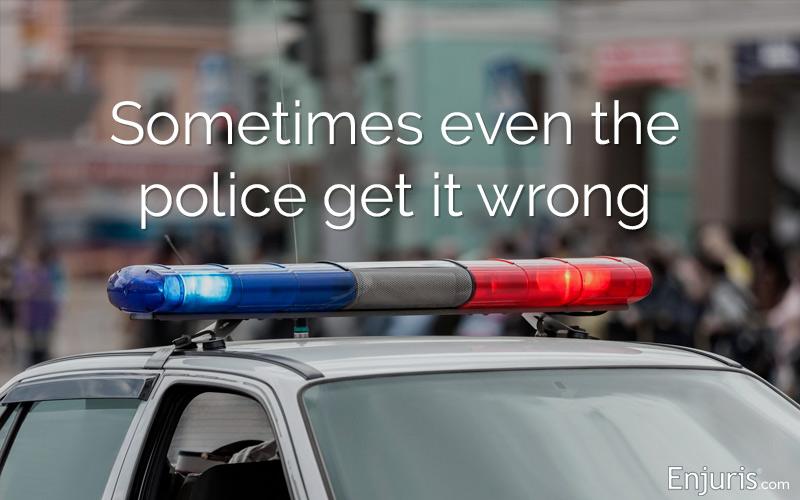
A police report is a written account of a police officer’s observations. If the police are called to the scene of a car accident, they will generally—but not always—write a police report.
Though police are trained to fairly investigate motor vehicle accidents and prepare police reports, they’re also human and mistakes sometimes happen.
So what happens if they get it wrong? Can you have the police report changed?
Why police reports are important
Police reports can contain a ton of information, including:
- Approximate date, time, and location of the accident
- Name and contact information of the parties involved
- Name and contact information of any witnesses to the accident
- Location of any damage to the vehicles involved
- The weather, road, and lighting conditions at the scene
- A diagram of the accident
- Photographs of the scene
- Statements from the parties and witnesses
- Citations and/or violations of law
- The opinion of the officer as to the cause of the accident
Insurance companies put a lot of stock in police reports. Not only are police officers seen as credible, impartial observers, but police reports are generally written within a few days of the accident based on notes taken by the officer at the scene of the accident.
As a result, police reports represent a fresh recollection of the important events, as opposed to the testimony of the parties and witnesses, which often comes weeks, months, or even years later.
Can I change the information in a police report?
In general, police reports can be amended. Whether or not a police officer is willing to amend a police report, however, depends a lot on what type of information they’re being asked to change:
- Factual errors. Police officers are generally willing to change factual errors that can be easily verified. For example, if the police report states the wrong date of the accident or misspells the name of one of the parties, a correction may be possible.
- Disputed information. Disputed information, such as the cause of the accident or a description of the driver’s behavior following the accident, are much less likely to be changed.
Advice for requesting a police report change
When asking a police officer to amend their accident report, keep the following tips in mind:
- Be polite. You have a much better chance of getting a police officer to change a police report if you treat the officer with kindness and respect.
- Provide documentation. Police officers are reluctant to change information based on telephone calls or emails from strangers. To increase your chances of having a police report changed, be ready to provide evidence supporting the requested change.
- Act quickly. Unfortunately, police officers respond to and write reports for hundreds of car accidents every year. You’ll stand a better chance of having your police report changed (or getting the officer to return your calls for that matter) if you contact the officer soon after the accident.
How to improve the accuracy of your police report
A lot’s going on after a car accident and your focus probably isn’t necessarily on the responding officer and whatever notes they’re jotting down in their notepad. However, once your safe, it’s important to approach the officer and provide them with as much detailed information as possible so the officer can include it in their report.
If there is a specific piece of information you believe should be in the report (perhaps your child in the car is experiencing back pain because of the accident), it’s okay to politely ask the officer to add it to the report. Similarly, if there’s something you think the officer missed (such as a witness standing off to the side or an open beer bottle the at-fault driver tossed into the woods), you should bring it to the officer’s attention and ask that it be added to the report. However, it’s important to avoid being pushy or arguing with the officer.
The bottom line is that it’s much easier to contribute to the police report while it’s being written than it is to change what the report says down the road.

